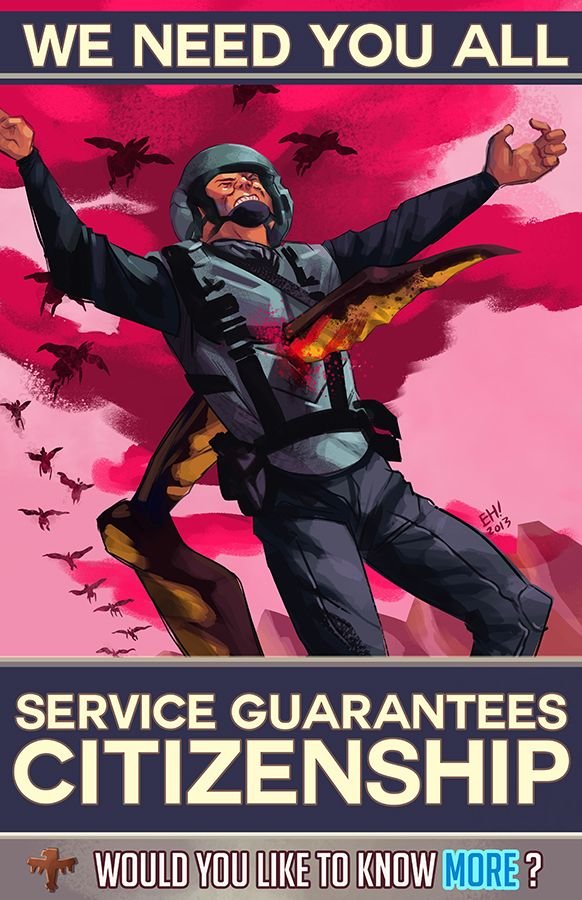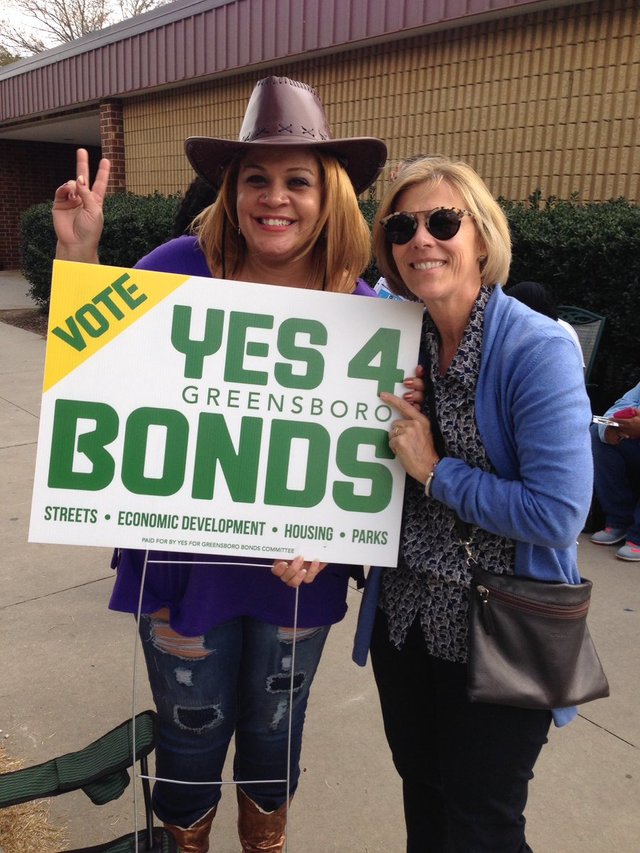I Work the Polls, part 6 -- Wrap-up and Confessional
One thing I never mentioned earlier was that I did see one very specific form of voter fraud, repeatedly and from members of both parties. People were bringing their autistic or retarded adult children, as well as their demented parents, to the polls and then voting FOR them. I'm not talking about the lady who had a stroke and couldn't talk, or the lady whose Parkinsonian tremor was so bad that she couldn't push the buttons herself, or the blind, all of whom I encountered doing curbside voting. I'm talking about full-on dementia cases, people who did not know where they were or who they were voting for. I didn't count the number of times that this happened, but it was often enough that we poll workers talked about it amongst ourselves more than once. Ten? Twenty? I don't know. At least one case in another state had charges brought, but I don't know if it ever went to court.

Personally, I figure a full-time caretaker probably deserves an extra vote.
But it does raise the question of qualifications. Robert Heinlein famously wrote in Starship Troopers that citizenship was earned, a privilege and not a right. Only those who completed their full term of Federal Service could vote. I'm not against poll tests, in principle, but just like the death penalty, there's such a long history of using them against specific ethnic groups that I don't know how to institute them fairly. How to decide who is competent and who is not? Certainly whoever wrote this is not going to nominate himself as one of the "complete idiots" who should be disqualified.
I think it's better to err on the side of generosity.
The bigger issue for me is that demented voters were just the most extreme example of ignorant voting. The NC legislature outlawed straight-party ticket balloting after the last presidential election, and the number of voters who were mad about that was striking. They didn't care who the candidates were, or what their individual policy positions or voting records were, as long as they were on the right side, part of the right tribe. I understand that our society is complex, and that we as humans with three-pound brains need heuristics to simplify our decision making. What I can't get behind is the idea of just letting someone else make that decision for me. I suppose someone could point out that journalists are also a tribe, and that they make decisions about what information I'm allowed to hear about all the time, but I don't want to rely on one news source, either.
I guess my real point is that our institutions are failing us, and vice versa.
From the heuristic article above:
Converse claimed that only around ten per cent of the public has what can be called, even generously, a political belief system. He named these people “ideologues,” by which he meant not that they are fanatics but that they have a reasonable grasp of “what goes with what”—of how a set of opinions adds up to a coherent political philosophy. Non-ideologues may use terms like “liberal” and “conservative,” but Converse thought that they basically don’t know what they’re talking about, and that their beliefs are characterized by what he termed a lack of “constraint”: they can’t see how one opinion (that taxes should be lower, for example) logically ought to rule out other opinions (such as the belief that there should be more government programs). About forty-two per cent of voters, according to Converse’s interpretation of surveys of the 1956 electorate, vote on the basis not of ideology but of perceived self-interest. The rest form political preferences either from their sense of whether times are good or bad (about twenty-five per cent) or from factors that have no discernible “issue content” whatever. Converse put twenty-two per cent of the electorate in this last category. In other words, about twice as many people have no political views as have a coherent political belief system.
I include myself here.
This two-week experiment has been my longest and most intense engagement in any election ever. I've been to maybe one City Council meeting; I've met a Council member at her public office hours one time; and as much as I hate to say it, that probably puts me in the top half of the local electorate. It seems like we know more about the workings of the Old Republic from Star Wars than we know about our own, and we definitely know more about how the Federal government works than we do our state and local governments. Students in our public schools learn essentially nothing about those topics, and what they do learn is empty content, just song and dance, or even satire, not backed by the application of engaging with the machinery of government in any meaningful way. I briefly met the Libertarian candidate for governor of NC at a meet-&-greet for the local bond issues (which all passed, with essentially no public debate beyond YES/NO yard signs).

He agreed that civics education was important, and inadequate.
He also lost, big.
Fortunately, I run a small educational media company, and there are models out there to copy and iterate on. This one lists six principles:
- Classroom Instruction: Schools should provide instruction in civics & government, history, economics, geography, law, and democracy.
- Discussion of Current Events and Controversial Issues: Schools should incorporate discussion of current local, national, and international issues and events, esp. those that students find important.
- Service-Learning: Schools should design and implement programs that provide students with the opportunities to link service learning to the formal curriculum and classroom instruction.
- Extracurricular Activities: Schools should offer opportunities for young people to get involved in their schools or communities outside of the classroom.
- School Governance: Schools should encourage meaningful student participation in school governance.
- Simulations of Democratic Processes: Schools should encourage students to participate in simulations of democratic processes and procedures.
Still, however half-assed our democracy is, we still have hundreds of years of half-assed democracy to build on, culturally. When I look around at other examples of political reform (I'm right now reading a book on Czarist Russia, under the Greats, Peter and Catherine), I recognize that we could be a lot worse off.
REFERENCES
A Guide to the Voting Rights of People with Mental Disabilities
http://www.bazelon.org/LinkClick.aspx?fileticket=7Cp83GrRVY0%3D&tabid=315
Only veterans could vote
That would be wrong. Read the book
(though this blog post says that Heinlein later expanded on this to include any civil servant
That would also be wrong. In StarShip Troopers it was ALWAYS that way.
The movie by the same name is just WRONG.
The only thing it got right was the name.
That said...regarding voting.
If it was up to me, not only would voter ID be required but the voter must first pass a test.
to show a basic understanding of the issues.
If the prospective voter doesn't pass...no vote.
at the same time.
If a candidate doesn't receive a minimium number of votes.
he's out....eliminate the office.
at the same time.
if a quorum of eligible voters does not turn out.
the election is invalid
do over.
Wikipedia agrees with you. https://en.wikipedia.org/wiki/Terran_Federation_(Starship_Troopers)
'The people of the Terran Federation are either "Citizens" or "Civilians". Everyone is born a "Civilian", and at age 18 every "Civilian" has the right to enroll for a minimal 2-year term of "Federal Service". In theory a completed term of Federal Service ensures a "Citizen" is willing to put the needs of the community before their own personal well-being. This is because Federal Service is tough and dangerous (by design). It can involve joining the military, being a human guinea pig, testing survival equipment, or manual labour. The Federation makes it quite easy to quit a term of service before completion (even during war-time), but once someone has quit they are never allowed to enroll again. This is to ensure that all volunteers are dedicated, whilst also discouraging people from leaving.
The Federation makes the opportunity of Federal Service open to everyone, able-bodied or not. A doctor giving a medical examination says "if you came in here in a wheelchair and blind in both eyes and were silly enough to insist on enrolling, they would find you something silly to match. Counting the fuzz on a caterpillar by touch, maybe." The only impediment that can render one ineligible for federal service is if a psychiatrist determines that one cannot understand the oath of service.'
Fixed.
Yup...Heinlein has been grossly maligned. That bears absolutely NO ressembalance to fascism, of which his book has been accused. By those who have NOT read it, no doubt.
I read that when I was in Jr High (now called middle school) I always thought it was a PERFECT way to do things.